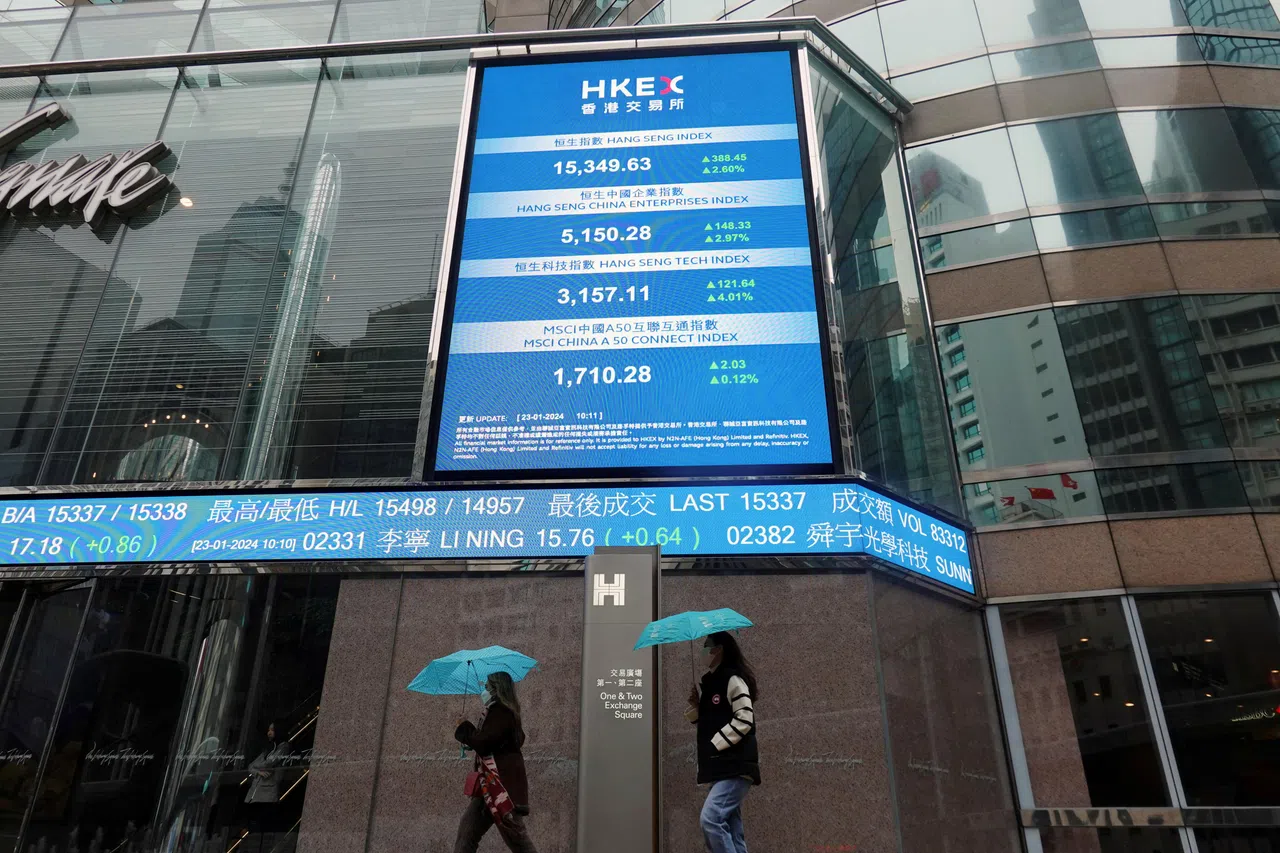CHINA’S efforts to bolster economic growth by reducing the allure of bank deposits has driven a record exodus from cash, with a big proportion of that going into bonds and wealth management products.
The nation’s total deposits slumped by 3.9 trillion yuan (S$728 billion), or 1.3 per cent, in April as investors looked for higher returns elsewhere and policymakers cracked down on companies that took advantage of preferential deposit rates to park cash at banks. One-year deposits at China’s largest banks pay a record-low of just 1.45 per cent.
The rush of funds into higher-yielding assets indicates efforts by Chinese policymakers to boost risk appetite are starting to bear fruit, though the money has yet to translate into a jump in consumer spending or stock investment.
“Factors, including an end of arbitrage borrowings, have vastly driven the reallocation of deposits, and it’s expected to continue,” said Ming Ming, chief economist at Citic Securities in Beijing. “People are withdrawing their savings to spend and invest, and that’s something that policymakers will be glad to see.”
The outstanding value of wealth management products jumped by 2.95 trillion yuan in April, with the biggest gains being made by fixed-income assets, according to Citic’s analysis. Exchange-traded funds tracking Chinese bonds attracted inflows of US$428 million in the same month, the most since December, data compiled by Bloomberg show.
Rampant retail demand for China’s first batch of special government bonds pushed up the price of the securities by as much as 25 per cent on their debut this week, triggering trading halts. At the same time, the one-year bond yield has dropped close to lows last seen in mid-2020.
GET BT IN YOUR INBOX DAILY
Start and end each day with the latest news stories and analyses delivered straight to your inbox.
There are signs too that at least some of the displaced money has found its way into stocks, principally those with higher payouts that are considered safer. The Shanghai Stock Exchange Dividend Index has climbed 16 per cent this year, and last month reached the highest level since 2015. That compares with a gain of only about 6 per cent in the benchmark gauge.
Both Chinese bonds and stocks have been rallying for months, with investors betting the central bank will ease monetary policy further while a slew of government support measures will help support the recovery. Still, lingering concerns over the uncertain economic outlook mean investors have preferred dividend stocks over those linked with growth.
Policymakers last month prohibited banks from offering preferred deposit rates to companies, thereby ending their practice of borrowing money at lower rates elsewhere to make risk-free returns by arbitrage. Meanwhile, to get people to spend, the government has worked with state-owned banks to push down savings rates.
Of the 3.9 trillion yuan slide in total deposits in April, 1.9 trillion yuan were in the form of withdrawals by households, according to central-bank data.
“Funds that were sitting in deposits switching over to wealth management products has been the biggest change in the market recently,” said Chen Yicong, managing director at Beijing Chengyang Asset Management. They are “mostly purchasing fixed-income products such as government bonds, local-government-financing-vehicle debt, and certificates of deposits”, he said.
Still, this bond-buying cannot be sustainable as it will eventually push yields too low, Chen said. “The bigger trend, which is that a broader source of funds will seek a haven in risk assets through dividend stocks is here to stay. Even if they are not yet buying riskier stocks.”
While the inflows into bonds will help Beijing and Chinese companies fund investments, easing pressure on banks to extend loans, it’s also a sign of low confidence among households. Years of stock market losses and a slumping property sector have eroded wealth and sapped the animal spirit of China’s army of retail investors.
“It’s a reflection of generally weak confidence in the economy and income prospects, so people would be chasing higher returns, even just petty profits, across asset classes, rather than boosting consumption, which is really what authorities wanted,” said Shen Meng, a director at Beijing-based investment bank Chanson & Co. “I’d expect that to continue in the near future, and if the capital market gains aren’t sustained, investors might move their money back into bank deposits again.”
Others also see the new dynamic lasting for another few months at least.
“The increase in deposit withdrawals will continue and the growth of loans will decline” in coming months as the authorities want to tap so-called idle cash for loan payments, said Xing Zhaopeng, senior China strategist at Australia & New Zealand Banking Group. That said, regulators will also frown on the money going into speculative bets on government bonds, he said. BLOOMBERG







